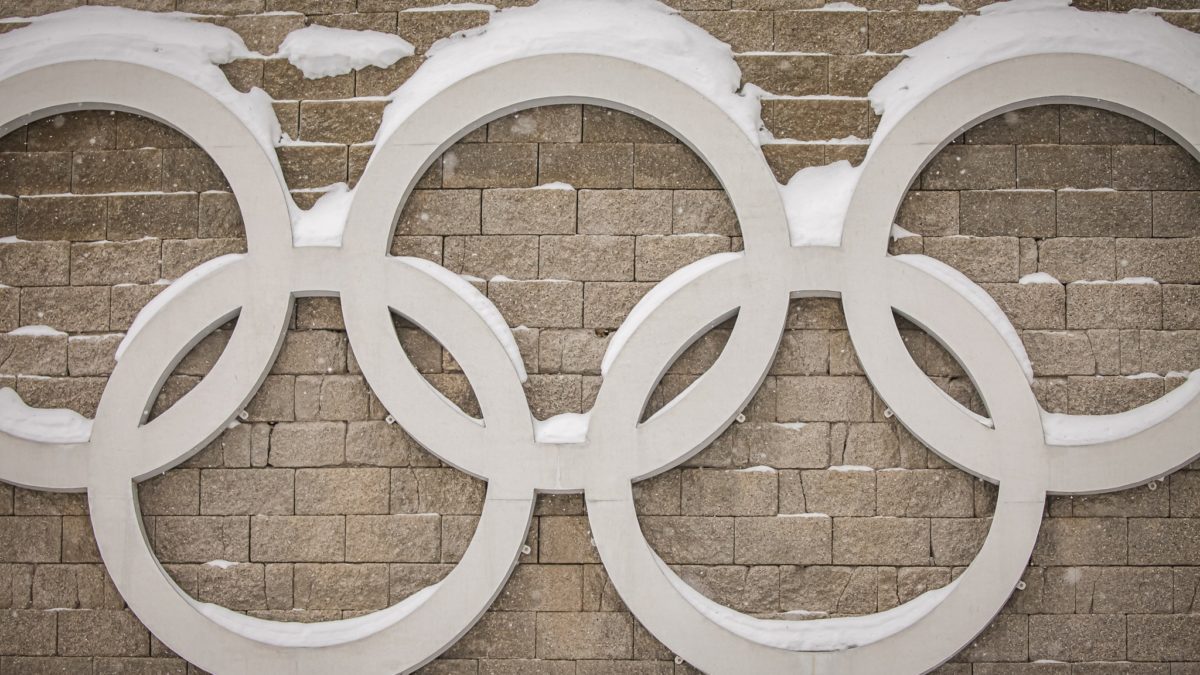Sports
What does it take to bring the Olympics back to Utah?

Luge World Cup, Park City, Utah Olympic Park. Photo: courtesy of FIL // Mareks Galinovskis
Salt Lake City-Utah Committee for the Games Executive Chair Catherine Norman elaborates on Utah's Olympic bid
SALT LAKE CITY – It’s no secret that Utah is working to have the Winter Olympics return to the state, with key figures such as stakeholders, politicians and former athletes collaborating to persuade the International Olympic Committee that Salt Lake City is the ideal host for the Winter Olympic and Paralympic Games in either 2030 or 2034.
Formed in 2019, the Salt Lake City-Utah Committee for the Games is dedicated to developing and submitting a bid to the IOC to bring the Games back to Utah in 2030 or 2034.
The executive board of the Committee comprises notable figures from Utah, including Gov. Spencer Cox and Salt Lake City Mayor Erin Mendenhall as honorary chairs, along with Utah Senate President Stuart Adams and Utah Speaker of the House of Representatives Brad Wilson as honorary vice-chairs.
The executive chair of the board, Catherine Raney Norman, a four-time Olympic speed skater, recently spoke with TownLift to elaborate on her position within the committee and the committee’s current status in the bid process.
Norman competed in four Olympic Games throughout her career, in the 1998, 2002, 2006, and 2010 Games. After her athletic career, Norman began her career as an athlete-leader, serving for a decade on the U.S. Olympic & Paralympic Committee’s Athletes’ Advisory Council, eventually rising to vice chair.
Norman also currently serves as the vice chair for the Utah Olympic Legacy Foundation, which has been maintaining former Games venues.
Norman has been involved in the bid process since its inception. She was asked by former Gov. Gary Herbert to sit on the initial exploratory committee in 2012. After the Salt Lake City-Utah Committee for the Games was founded in 2019, Cox appointed Norman to serve on the executive board.
The Salt Lake City-Utah Committee for the Games was founded after the U.S. Olympic and Paralympic Committee selected Salt Lake City as America’s Choice for Winter Games in 2018, choosing it over other contestants such as Reno, Nevada; Lake Tahoe, California; and Denver, Colorado.
Norman attributes one of the key factors in the U.S. Olympic and Paralympic Committee’s decision in naming Salt Lake City as America’s choice to preexisting infrastructure from the 2002 Olympic Games.
“All of those cities have amazing venues and attributes that they could host the games with. I think we’re really set aside in that we have a lot of key infrastructure already in place to be able to facilitate the events. When you look at the bobsled skeleton, the luge track, and the speed skating rink, we maintained those at a world-class level,” Norman said.
“I think what set us aside was the opportunity to reutilize those venues. It’s an opportunity to really look at sport through a sustainability lens.”
All former venues from the 2002 Olympic Games have been maintained by the Utah Olympic Legacy Foundation, which has made continual investments in the facilities and maintained them to meet international standards and requirements.
Norman explains that the selection of Salt Lake City by the U.S. and the involvement of politicians in submitting a bid to the IOC can be attributed to the deep pride and enthusiasm that Utah exhibits, stemming from its past Olympic hosting experiences and the potential for future games.
“We have continued to keep that excitement and that enthusiasm about the Olympic and Paralympic movement across our state,” Norman said. “Recently, we had a poll come out that said 82% of Utahns support a future games. Partially, I think this is due to the fact that a lot of those venues — the Utah Olympic Park, the speed skating oval — provide opportunity for community members to take part alongside the high performance rate, which is unique blend and creates a sense of community.”
“Then there is also an economic impact in tourism. I think we have done a remarkable job here in the state, and have had over 1000 events hosted here in Utah that have driven economic impact. That is absolutely critical. I think that all of these aspects are lenses that our political leadership look through to recognize that this has a positive impact on our community in so many different ways, from a quantitative and qualitative standpoint.”
Another key point is that any Olympic games held in Salt Lake City, either 2030 or 2034, will be entirely privately funded through sponsorships, ticket sales, donations and hospitality revenue.
Since Salt Lake City has been named as the official preference of the U.S. in 2018, extensive work has been done to formally submit a bid to IOC.
“We have been working quite closely and coordinating with the US Olympic and Paralympic Committee (and) with all of our local community sport venue organizations … The International Paralympic Committee is putting together what’s called a hosted file,” with thousands of documents, Norman said.
“For example, when we go to submit this file to the IOC, we have to have 24,000 hotel rooms under contract. We have very much been working on that and we are now in what is called continuous dialogue with the International Olympic Committee, and this is currently targeted for the 2030 games because that is the only iteration of a games that is open for the process. Now we have been working really closely with the IOC and we have shared with them over and over, our preference is 2034. But if you need us for 2030 we’re here, we’re ready.”
The next step in the bid process would be transitioning from a continuous dialogue with the IOC to a targeted dialogue, which is the next step in earning a bid from the IOC.
In terms of why the committee prefers 2030 over 2034, Norman points to the fact that the 2028 Summer games are being held in Los Angeles.
“So we want to make sure that obviously Los Angeles is successful in their effort. Whether that means their ticketing, sales, hospitality, as well as from their sponsorship, activation and revenue generation sources. So we know that by spacing out from them, there’s greater opportunity for them to be successful and for us to be successful and having that bit of a timeframe between 2028 and 2030 or 2034 is beneficial in doing that,” she said.
In the international community, Salt Lake City is competing against several other countries and cities for either the 2030 or 2034 bid.
“In regards to 2030, which is the process that is currently open right now, there have been a few other interested parties at the table,” Norman said. “Stockholm, Sweden is interested in bidding, France is interested in 2030, and then Switzerland as well. Those are the three main candidates that have come forward who are also interested in 2030.”
“On the 2034 landscape, Salt Lake City has raised their hand for that one as well. And then there’s been some quiet kind of discussion potentially around Sapporo, (Japan), but there haven’t been too many other entities that have raised their hand for 2034,” she explained.
Norman believes that Salt Lake City has an advantage over other cities because of the compactness of the future venues.
“We’re so fortunate to have this region where our head will be the University of Utah,” she said. “That’s where our athletes village will be. Basically all of our proposed venues, at this point in time, are all within a one-hour radius. … To be able to have a one-village opportunity again is really critical. I think, as an athlete, and having had that experience is unlike any other. The goal of the games is to unite the world through sports, and to be able to bring all of the athletes to one village again and unite them under sport is something that we are really proud of. And that’s unique and different compared to others where you may have a cluster in one region and then a cluster in another region with the athletes spread out.”
In terms of how Utahns can become involved to help make the vision a reality in hosting the 2030 or 2034 games, Norman says, “Keep celebrating the values of the Olympic and Paralympic movement. We are so fortunate that so many people support and believe in this, and that’s really important. I know it sounds a little cheesy, but it is so important to be able to display a community that believes in those values, and to have a community that embraces our athletes and Team USA athletes.”


















